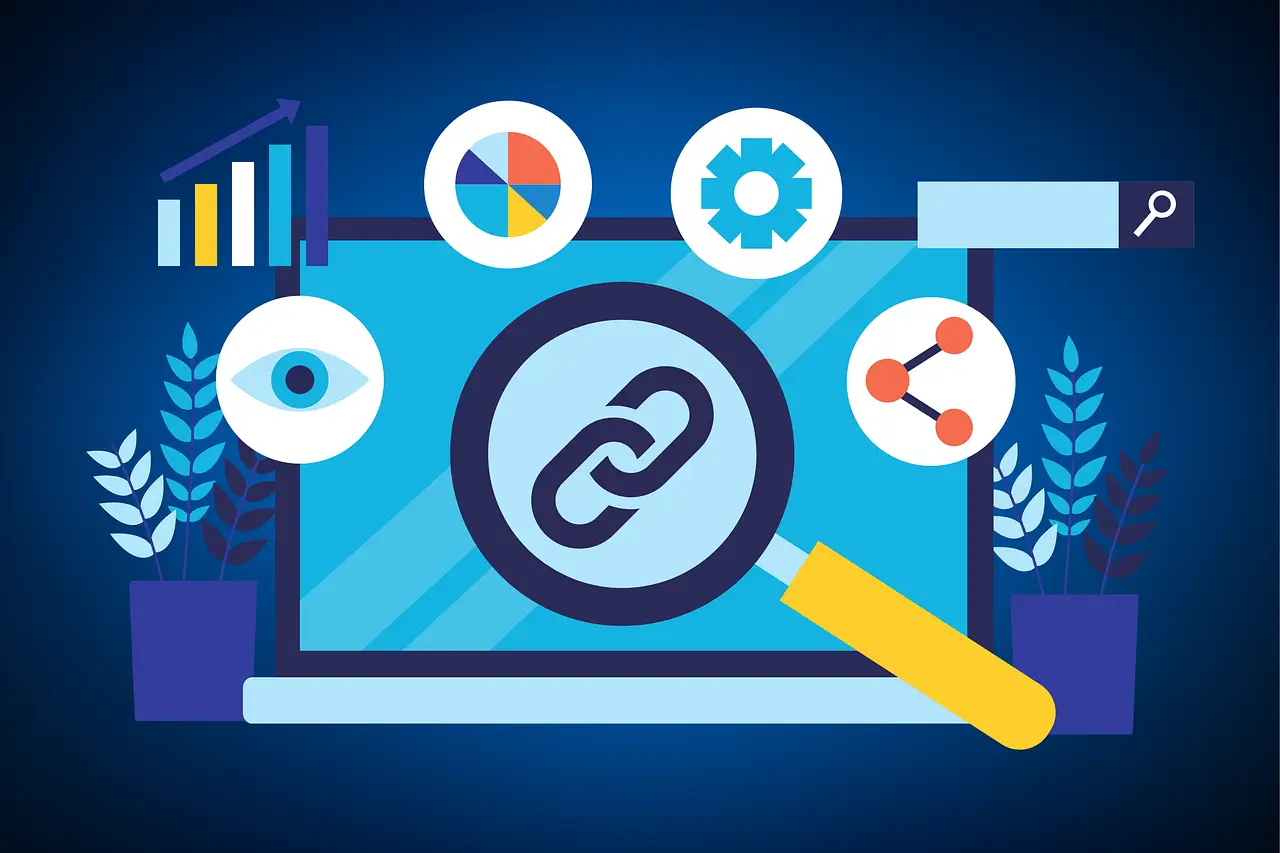In the world of search engine optimization (SEO), backlinks play a crucial role in improving a website’s visibility and boosting its rankings on search engines. But what exactly are backlinks, and how do they influence SEO? This blog post will delve into the importance of backlinks, how they work, and why they are one of the most effective strategies for enhancing search rankings.
What Are Backlinks?
Backlinks, often referred to as inbound links or external links, are links that point from one website to another. Essentially, they are votes of confidence from one site to another, indicating that the content is valuable and worth referencing. When a reputable website links to your page, it signals to search engines like Google that your website contains useful, credible, and authoritative information.
In SEO, backlinks are considered a key ranking factor. Websites with a high number of quality backlinks are more likely to rank higher on search engine results pages (SERPs). However, not all backlinks are created equal—quality and relevance matter more than quantity. If you’re looking to boost your online presence, consider exploring the benefits of seo marketing sydney, which offers tailored strategies to enhance your website’s visibility and drive targeted traffic.
How Backlinks Impact Search Rankings
Search engines use complex algorithms to determine the relevance and authority of a webpage. Backlinks are one of the major factors these algorithms consider. Here’s how backlinks affect your search rankings:
1. Improving Domain Authority
Domain authority is a metric used to predict how well a website will rank on search engines. The more high-quality backlinks a website has, the higher its domain authority will be. Backlinks act as endorsements from other sites, which helps build your site’s credibility and trustworthiness in the eyes of search engines.
2. Increased Traffic Potential
When authoritative websites link to your pages, it not only helps your search rankings but also drives referral traffic. Visitors who come across your website via a backlink are more likely to engage with your content, increasing your website’s overall traffic. This organic traffic can lead to higher conversion rates and improved engagement metrics.
3. Enhanced Crawling and Indexing
Search engines use crawlers to index the web. Backlinks help search engine bots discover new pages on your website. When a backlink points to your page, it alerts search engine crawlers, ensuring that your content is indexed quickly and can appear in search results. Without backlinks, search engines might not be aware of your content, which could hinder your visibility.
4. Influencing Keyword Rankings
Backlinks often contain anchor text, which is the clickable text in a hyperlink. If a page links to your website with keyword-rich anchor text, it signals to search engines that your content is relevant to that keyword. Over time, these backlinks help improve your keyword rankings by associating your website with specific search terms.
Types of Backlinks
Not all backlinks are equal in value. The quality of the backlink depends on several factors, such as the authority of the linking website and the relevance of the content. Let’s explore some of the different types of backlinks:
1. Natural Backlinks
Natural backlinks are links that are given to your site naturally, without any effort on your part. These types of links occur when another website finds your content valuable and links to it on their own accord. Natural backlinks are the most valuable type, as they indicate to search engines that your content is truly worthy of recognition.
2. Manual Backlinks
Manual backlinks are the result of intentional actions you take to gain links. This could involve outreach, asking influencers or bloggers to link to your content, or submitting your website to directories. While manual backlinks are still important, they should be done carefully and ethically to avoid penalties from search engines.
3. Self-Created Backlinks
Self-created backlinks are typically the result of activities like leaving comments on blogs, forum posts, or adding links to your website in online profiles. These types of backlinks should be used sparingly, as they can sometimes be considered spammy. Search engines may penalize websites for overusing these tactics, as they do not always provide genuine value to users.
4. Editorial Backlinks
Editorial backlinks are those that are given within the content of a website, often in the form of a citation or reference. These links are highly authoritative because they are typically awarded based on the quality of your content. When a website’s editorial team decides to link to your content, it signifies that your page provides in-depth, credible information.
Quality Over Quantity: Why It Matters
When it comes to backlinks, quality is far more important than quantity. A single high-quality backlink from an authoritative website can have a much greater impact than numerous low-quality links. Search engines prioritize backlinks from well-established, trusted websites over links from low-authority or spammy sites.
Here are some key factors that contribute to the quality of a backlink:
- Relevance: The linking site should be related to your industry or content. For example, a backlink from a health website would be more valuable to a fitness-related blog than one from a completely unrelated topic.
- Domain Authority: Backlinks from websites with higher domain authority hold more weight. Search engines trust these sites more, and a link from them acts as a stronger endorsement.
- Link Location: Links placed within the body of a page, especially near the top or in prominent sections, tend to carry more value than links found in footers or sidebars.
- Anchor Text: The anchor text used in the backlink should be relevant to the content it’s linking to. This helps search engines understand the context of the link.
- Follow vs. No-Follow Links: A “follow” link passes link equity to your website, which can positively affect your rankings. A “no-follow” link doesn’t pass link equity but can still help with referral traffic and visibility.
Building a Backlink Strategy
To leverage backlinks effectively in boosting your search rankings, it’s important to have a well-planned backlink strategy. Here are some proven tactics:
1. Content Creation
Creating high-quality, informative, and engaging content is one of the best ways to earn natural backlinks. When your content provides value to users, other websites will be more likely to reference and link to it. Focus on creating in-depth guides, case studies, research reports, and other valuable resources.
2. Guest Posting
Guest posting is a popular strategy where you write articles for other websites in your industry, with a backlink to your own site included in the author bio or within the content. This not only helps build backlinks but also establishes your authority in the field.
3. Broken Link Building
This tactic involves finding broken links on other websites and offering your content as a replacement. It’s a win-win for both parties: the website owner gets to fix their broken link, and you get a valuable backlink.
4. Link Reclamation
If your content has been mentioned or referenced without a backlink, you can reach out to the website owner and request that they add a link to your page. This process is known as link reclamation and can help you recover lost opportunities.
5. Competitor Analysis
Analyzing your competitors’ backlink profiles can reveal opportunities for link building. Tools like Ahrefs and SEMrush allow you to see where your competitors are getting their backlinks from, which can help you identify websites that may be willing to link to your content as well.
Avoiding Bad Backlink Practices
While building backlinks is essential for seo, it’s important to avoid bad backlink practices that can lead to penalties from search engines. Some unethical tactics include:
- Buying Backlinks: Purchasing backlinks from link farms or low-quality sources can result in penalties.
- Excessive Link Exchanges: Over-exchanging links with other websites can be seen as manipulative and violate Google’s guidelines.
- Spammy Links: Obtaining backlinks from irrelevant or low-quality sites can harm your SEO efforts.
Conclusion
Backlinks continue to be a fundamental component of SEO success. By earning quality backlinks, you can enhance your website’s domain authority, improve your rankings on search engines, and drive more organic traffic. Focus on creating high-quality content, building genuine relationships, and employing ethical link-building strategies to gain the backlinks that will boost your search rankings over time.




